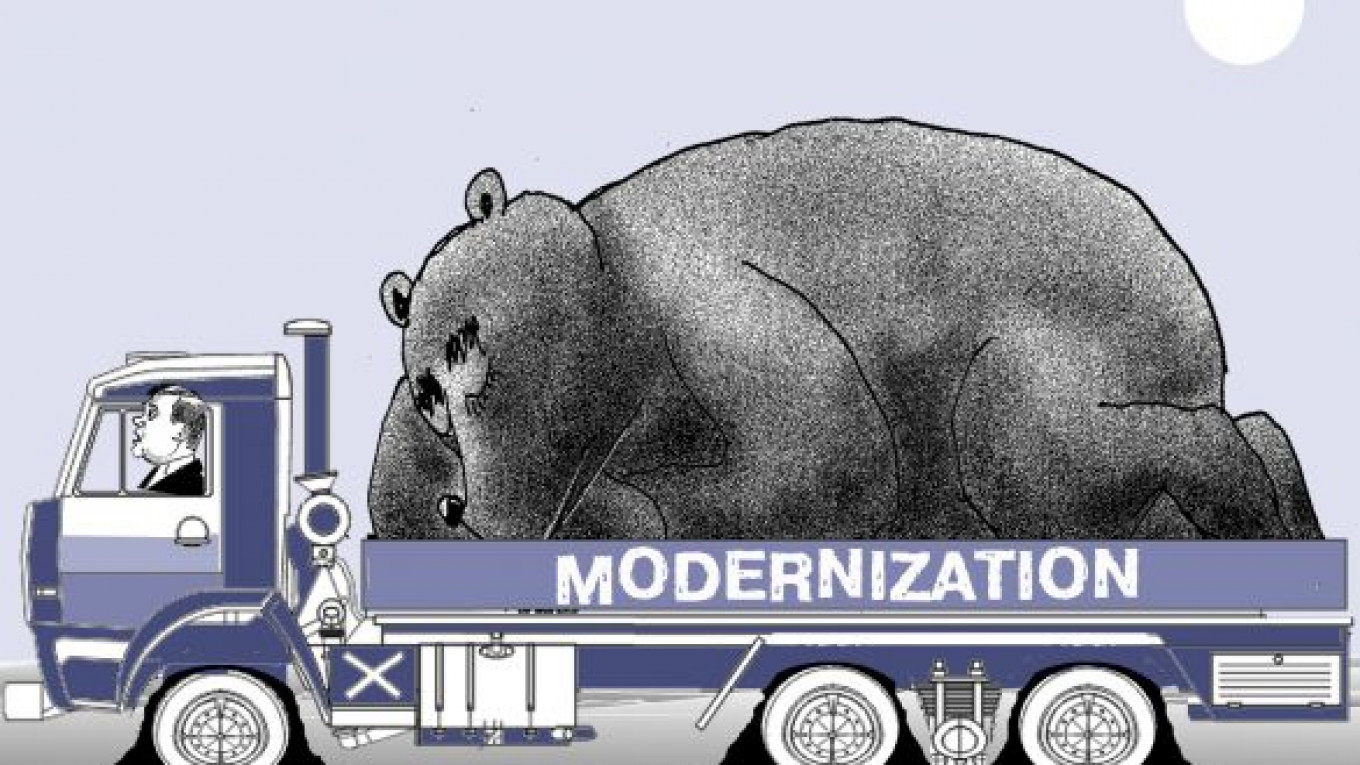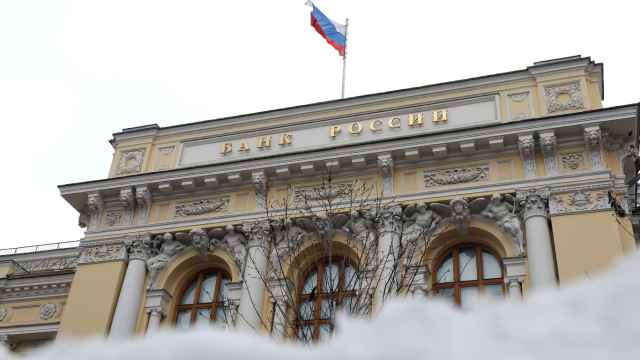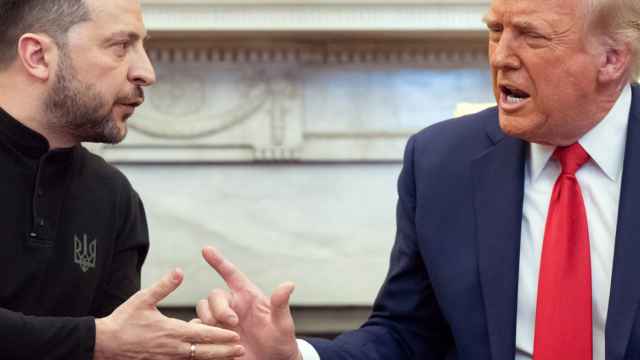Russia is once again falling into the “modernization trap.” None of the previous modernization drives empowered property owners or civil society with the power needed to make the process self-sustaining and irreversible.
Thus, a modern state has never been formed in Russia. Political and economic institutions collapsed twice under their own weight in the last century — in 1917 and in 1991. Like any closed system, both imperial and Communist Russia could not understand the needs of the people and therefore proved incapable of coping with unexpected economic troubles or the pressure of a crisis.
And that is precisely the problem with Russia’s current modernization drive. Its architects want to push forward economic and technological innovation without implementing institutional reforms to curb pro-Kremlin political and business clans that have enormous control over the country’s resources.
At the same time, however, a free market of some sort has appeared in Russia; a middle class, albeit loosely defined, is developing; and a vibrant Internet community is rapidly expanding, But the doors of Russia’s political system remain only slightly ajar. They are open just enough to release some of society’s steam, but never enough to threaten the elite’s monopoly on power. As a result of this excessive federal control over political and economic institutes, all attempts at modernization in Russia have failed.
To be sure, there have been some successful examples in history of modernization being jump-started by the personal decree by authoritarian leaders. But they succeeded in the long term only because the regimes were able to build functioning political and economic institutions that led to a gradual easing of authoritarian rule. In his biography of Mustafa Ataturk, the founder of the modern, secular Turkey that we know today, author Andrew Mango summed up the Turkish modernization drive this way: “Progress advanced through two stages: the rule of law coupled with lies, and then the rule of law without lies.”
But not every authoritarian ruler is as successful as Ataturk or former Singaporean leader Lee Kuan Yew, nor is every such regime willing to dismantle its own political and business elite and train it to respect and obey the law. Russia’s elite who are lobbying for a continuation of the country’s status quo are essentially supporting more “rule of law with lies.”
The distinctive feature of President Dmitry Medvedev’s leadership style is that he forces government officials to comply with his instructions, whether they are forcing them to reconsider the social tax or fulfilling state defense contracts. This approach is urgently needed, but it will work only when government officials are checked and controlled by their bosses, as well as by the people’s elected representatives, including those from true opposition parties, in parliament.
Russia now faces formidable obstacles on the path to modernization: ineffective government, poor institutions and an acute crisis of the people’s confidence in government. Under such conditions, the only leader capable of launching a successful modernization drive is one who possesses a mandate of confidence from voters. He will also require a well-defined modernization plan and the political will to institute decisive institutional reforms and to provide an open dialogue and debate with society.
Since Medvedev is determined to institute this type of modernization, the Institute of Contemporary Development supports his candidacy for a second term. But for Medvedev’s modernization process to get off the ground and for a coalition of supporters to rally around it, the following two conditions must be met:
- Medvedev’s presidential candidacy should be announced as early as possible so that he can use the campaign to thoroughly promote his modernization agenda and win the support of the people for a second term. Moreover, Prime Minister Vladimir Putin should publicly support Medvedev and not run against him.
- If Medvedev announces that he will be the single candidate from the ruling tandem to run in the 2012 presidential race, United Russia should throw its support behind him. Medvedev, in turn, should support United Russia’s political and economic platform in the run-up to State Duma elections in December. At the same time, there would be nothing wrong with Medvedev incorporating ideas from other political parties in his presidential platform if he feels this would help his modernization agenda.
Medvedev needs to encourage open dialogue between society and government officials regarding the progress of the modernization program and the means for establishing strict societal control over its implementation. That is why it would be favorable for Medvedev to begin now and use the remaining six months to present the program to the public and discuss and debate the key provisions.
This will help create a social contract between Medvedev and those who understand that modernization is crucial to Russia’s progress. Both sides would be duty-bound to do their utmost to finally bring about sweeping modernization of the country.
Igor Yurgens is chairman of the board of the Institute of Contemporary Development. Yevgeny Gontmakher is a member of the institute’s board. Boris Makarenko is the institute’s managing director, and Nikita Maslennikov is an adviser to the institute. This comment appeared in Vedomosti.
A Message from The Moscow Times:
Dear readers,
We are facing unprecedented challenges. Russia's Prosecutor General's Office has designated The Moscow Times as an "undesirable" organization, criminalizing our work and putting our staff at risk of prosecution. This follows our earlier unjust labeling as a "foreign agent."
These actions are direct attempts to silence independent journalism in Russia. The authorities claim our work "discredits the decisions of the Russian leadership." We see things differently: we strive to provide accurate, unbiased reporting on Russia.
We, the journalists of The Moscow Times, refuse to be silenced. But to continue our work, we need your help.
Your support, no matter how small, makes a world of difference. If you can, please support us monthly starting from just $2. It's quick to set up, and every contribution makes a significant impact.
By supporting The Moscow Times, you're defending open, independent journalism in the face of repression. Thank you for standing with us.
Remind me later.






